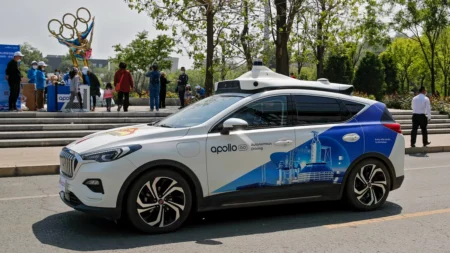In the heart of the Middle East, Dubai stands as a testament to modernity and progress, not only in architecture and infrastructure but also in the realm of financial technology. The emirate has embarked on a transformative journey towards becoming a cashless society. A movement marked by both challenges and inspiring success stories of digital payment solutions in Dubai.
Challenges on the Road to Cashless Payment System in Dubai
1. Cultural Shift:
The first challenge faced by Dubai in its pursuit of a cashless society is the need for a cultural shift in people’s attitudes toward cash. Traditionally, cash has been deeply ingrained in daily transactions, and convincing individuals to adopt digital alternatives requires breaking through cultural norms and building trust in electronic payment systems.
2. Inclusivity and Accessibility:
While Dubai is known for its opulence, there are segments of the population, including low-income workers and certain demographics, for whom access to banking services may be limited. Bridging the gap and ensuring that cashless solutions are accessible to all residents is a significant challenge.
3. Cybersecurity Concerns:
As the reliance on digital transactions increases, so does the risk of cyber threats. Dubai faces the challenge of implementing robust cybersecurity measures to protect the financial data of individuals and businesses. Building trust in the safety of cashless transactions is crucial for widespread adoption.
4. Regulatory Framework:
The rapid evolution of financial technology requires a dynamic and adaptive regulatory framework. Striking a balance between fostering innovation and ensuring consumer protection poses a challenge for Dubai’s regulatory bodies. Creating an environment that encourages the growth of cashless solutions while safeguarding against potential risks is a delicate task.
5. Education and Awareness:
A significant challenge lies in educating and raising awareness among the population about the benefits and functionalities of cashless payment systems. Many individuals, especially in older demographics, may be unfamiliar with digital transactions, necessitating comprehensive educational campaigns.
6. Infrastructure Development:
The transition to a cashless society requires a robust and advanced technological infrastructure. Ensuring that every corner of Dubai, including remote areas, has access to high-speed internet and reliable digital communication networks is crucial for the widespread adoption of cashless solutions.
7. Cross-Border Transactions:
Dubai’s international appeal brings a diverse population, and facilitating cross-border transactions seamlessly presents a challenge. Overcoming regulatory barriers and interoperability issues with global payment systems will be essential to cater to the needs of a cosmopolitan society.
8. Social Equity and Financial Inclusion:
Achieving social equity in the adoption of cashless solutions is a challenge. Ensuring that all socio-economic groups benefit from and have access to digital financial services is crucial for creating an inclusive cashless society. This involves addressing issues related to income disparity and financial literacy.
9. Transition Costs for Businesses:
Businesses, especially small and medium enterprises (SMEs), may face challenges in adapting their operations to accommodate cashless transactions. The costs associated with upgrading point-of-sale systems, training staff, and ensuring compliance with new payment methods can be a barrier for some businesses.
10. Privacy Concerns:
The shift to digital transactions raises concerns about privacy and data security. Dubai must navigate the delicate balance between convenience and safeguarding the privacy of individuals. Building trust in the security of personal and financial information is vital for the success of cashless initiatives.
Success Stories Illuminating the Path
1. Mobile Wallets and Apps:
The proliferation of mobile wallet applications has been a significant success in Dubai’s journey to a cashless society. Apps like Apple Pay, and Samsung Pay, and local offerings like Beam and Etisalat Wallet have gained popularity, providing users with convenient and secure alternatives to traditional payment methods.
2. Government Initiatives:
The government of Dubai has played a pivotal role in driving the adoption of cashless payments. Initiatives such as the Smart Dubai project aim to create a seamless, efficient, safe, and impactful city experience for residents and visitors. The integration of government services into digital platforms has been a model for other sectors.
3. Contactless Payments in Retail:
The retail sector in Dubai has embraced contactless payment technologies, providing consumers with a swift and secure way to make purchases. From luxury shopping malls to local markets, businesses are actively promoting the use of contactless cards and mobile payment solutions, contributing to a reduction in cash transactions.
4. Fintech Innovation:
Dubai has become a hub for financial technology (fintech) innovation. The rise of startups focusing on digital payment solutions has injected fresh ideas into the financial landscape. Companies like NOW Money, Beehive, and PayBy are reshaping the way transactions are conducted, offering tailored solutions that cater to the needs of diverse consumer segments.
5. Collaboration between Banks and Fintech:
Recognizing the potential for collaboration, traditional banks in Dubai are partnering with fintech companies to enhance their digital capabilities. These collaborations have led to the development of innovative products and services, creating a synergy between established financial institutions and agile fintech startups.
Looking Ahead
Dubai’s vision for a cashless society is not merely an economic aspiration but a strategic move towards a more efficient, transparent, and technologically advanced future. As the challenges are addressed and success stories multiply, the city on the shores of the Arabian Gulf is poised to set an example for other global financial centers.
The path to a cashless society involves a multidimensional approach. Education campaigns to inform and persuade the public, infrastructure investments to ensure widespread accessibility, and continuous technological advancements to fortify security are all integral components. Dubai’s success in navigating these challenges will likely inspire and guide other cities around the world as they tread the same path.
Conclusion
Dubai’s journey towards a cashless society is a fascinating narrative of innovation, adaptation, and determination. The challenges encountered are not roadblocks but stepping stones, each contributing to the evolution of a financial landscape that mirrors the city’s commitment to progress. As Dubai continues to pioneer digital transformation in the Middle East, the vision of a cashless society draws closer, bringing with it a future where transactions are seamless, secure, and in tune with the pulse of a global metropolis.





